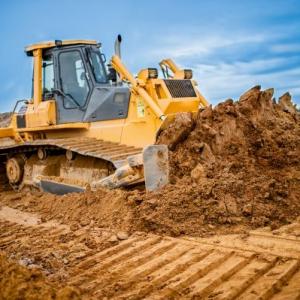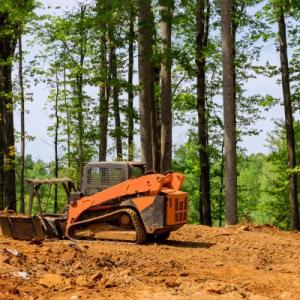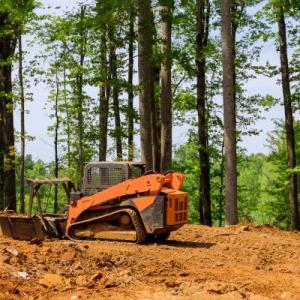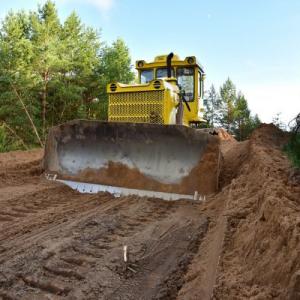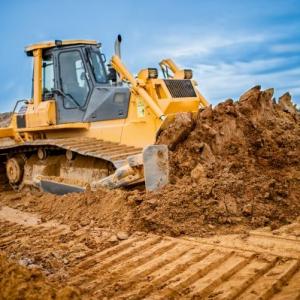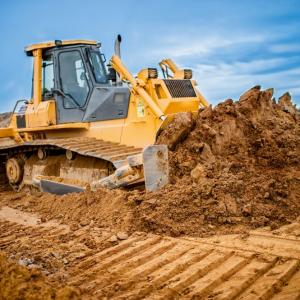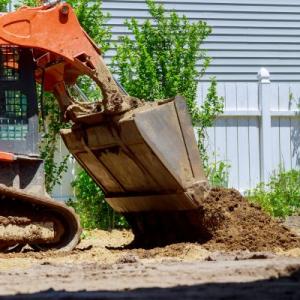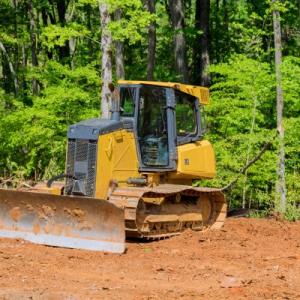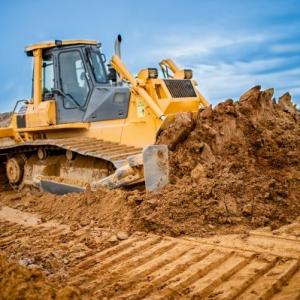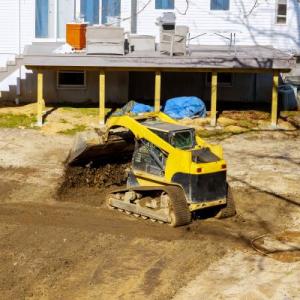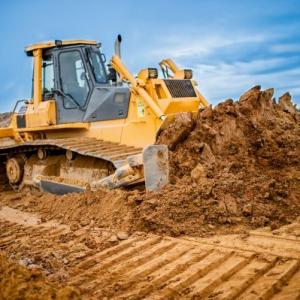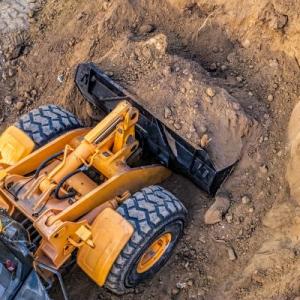Terrain Grading: Montgomery
Terrain Grading in Montgomery
Get help with Terrain Grading in Montgomery. Fill out the form above and we will connect you with local Montgomery pros. Terrain grading offers numerous advantages for homeowners and property owners alike. This process involves reshaping the land, ensuring proper drainage, and eliminating any uneven or sloping areas. By opting for terrain grading, you can create a more functional and aesthetically pleasing outdoor space. This service helps to prevent water accumulation, reducing the risk of flooding and water damage. Additionally, terrain grading promotes better soil health and prevents erosion, which is crucial for maintaining the integrity of your property. With proper grading, you can also enhance the safety of your outdoor areas, making it easier to navigate and reducing the risk of accidents. Ultimately, terrain grading allows you to optimize your land, improving its overall functionality and value.Land Leveling
Land leveling is a fundamental process that involves shaping and contouring the land to achieve a desired level surface. This technique offers numerous benefits to property owners and developers. Firstly, land leveling enhances the overall aesthetics of the site, ensuring a visually appealing landscape. Additionally, it facilitates proper drainage by eliminating low spots and preventing water accumulation, which can lead to erosion and other environmental issues. Moreover, land leveling promotes efficient land use, allowing for easier construction and improved agricultural productivity. By creating a level surface, it also helps in the installation of irrigation systems, ensuring optimal water distribution. Overall, land leveling is a crucial step in land development that provides a solid foundation for various projects.Earthmoving
Earthmoving is a highly useful service that involves the movement of large quantities of soil, rock, or other materials to reshape the landscape. It is commonly employed in construction projects, mining operations, and infrastructure development. The primary benefit of earthmoving is its ability to efficiently and effectively excavate, level, and grade land, allowing for the creation of foundations, roads, and drainage systems. Earthmoving machinery, such as excavators, bulldozers, and dump trucks, are specifically designed for these tasks, enabling operators to handle large volumes of material with precision and speed. By utilizing earthmoving services, projects can be completed more efficiently, saving time and resources. Additionally, earthmoving can help improve safety by reducing the risk of unstable or uneven ground conditions.Site Grading
Site grading is a crucial aspect of land development and construction projects. It involves the leveling and shaping of the land to ensure proper drainage and stability. By carefully manipulating the topography, site grading helps prevent issues such as soil erosion, flooding, and water accumulation. This process also facilitates the installation of utilities, foundations, and infrastructure, ensuring smooth and efficient construction. Additionally, site grading enhances the overall aesthetics of the property, creating a visually appealing and functional landscape. Through precise measurement and analysis, site grading optimizes the site's contours, promoting safety and longevity for any future structures or developments.Slope Stabilization
Slope stabilization is a crucial process that offers numerous advantages for property owners. It involves implementing effective techniques to secure and reinforce unstable slopes, preventing potential damage and hazards. By opting for slope stabilization, property owners can ensure the long-term stability and safety of their land. This process helps to mitigate the risk of soil erosion, landslides, and slope failures, which can lead to property damage, environmental degradation, and even personal injury. Slope stabilization techniques, such as retaining walls, soil nailing, and erosion control measures, help to maintain the natural balance of the landscape and protect against the adverse effects of gravity, water flow, and other external factors. Overall, slope stabilization is a proactive approach that promotes the preservation and durability of the land, providing peace of mind to property owners.Excavation
Excavation is a vital process in construction and land development projects. It involves the removal of soil, rocks, and other materials from a site to create space for building foundations, utility installations, or landscaping. The benefits of excavation are numerous. Firstly, it allows for the proper preparation and leveling of the ground, ensuring a stable and secure foundation for any structures to be built. Additionally, excavation enables the installation of underground utilities such as water, sewer, and electrical systems, which are essential for modern infrastructure. Moreover, excavation facilitates the removal of unwanted or hazardous materials from the site, ensuring a safe environment for both workers and future occupants. Overall, excavation plays a crucial role in the successful implementation of construction projects by providing a solid base and necessary groundwork.Erosion Control
Erosion control is a crucial aspect of land management that offers numerous benefits. By implementing erosion control measures, such as the use of retaining walls, terracing, or vegetation, the erosion and subsequent loss of soil can be significantly minimized. This helps in preserving the integrity of the land, preventing soil erosion, and reducing sedimentation in nearby water bodies. Erosion control also plays a vital role in maintaining the stability of slopes and preventing landslides. Additionally, it aids in preserving the natural habitat by preventing the displacement of native plants and animals. Moreover, erosion control measures contribute to the overall aesthetic appeal of the landscape and can enhance property value.Terrain Grading FAQ
Q: What Is Terrain Grading And Why Is It Important For Land Development?
Answer: Terrain grading refers to the process of reshaping the land's surface to achieve desired slopes and contours. It is crucial for land development because it helps control water drainage, prevents erosion, and creates a stable foundation for construction. Proper terrain grading ensures efficient use of land, enhances aesthetics, and promotes safety and sustainability in development projects.Q: How Does Terrain Grading Affect The Overall Drainage And Water Management Of A Property?
Answer: Terrain grading plays a crucial role in the overall drainage and water management of a property. Proper grading ensures that water flows away from the property, preventing water accumulation and potential damage. It helps direct water towards drainage systems, reducing the risk of flooding and soil erosion.Q: What Are Some Common Challenges Or Issues That Can Arise During Terrain Grading Projects?
Answer: Some common challenges or issues that can arise during terrain grading projects include uneven ground surfaces, poor drainage, erosion, soil compaction, and difficulty in achieving desired slope or contour.Q: Are There Any Specific Considerations Or Techniques For Terrain Grading In Areas With Steep Slopes Or Uneven Terrain?
Answer: Yes, when it comes to terrain grading in areas with steep slopes or uneven terrain, there are specific considerations and techniques that need to be taken into account. These include assessing the stability of the slopes, implementing erosion control measures, using retaining walls or terracing to create level areas, and ensuring proper drainage to prevent water accumulation. Professional expertise and careful planning are crucial in such situations to ensure effective and safe terrain grading.Terrain grading, also known as land grading or site grading, is the process of reshaping the natural contours of the land to create a level or sloping surface. It involves the removal or addition of soil to achieve the desired elevation and slope for construction or landscaping purposes. Terrain grading is commonly done to ensure proper drainage, prevent erosion, and create a stable foundation for buildings, roads, or other structures. It is an essential step in land development, as it helps to optimize the use of the land and maximize its functionality. Skilled professionals, such as civil engineers or grading contractors, are typically hired to perform terrain grading, using specialized equipment like bulldozers and graders.

